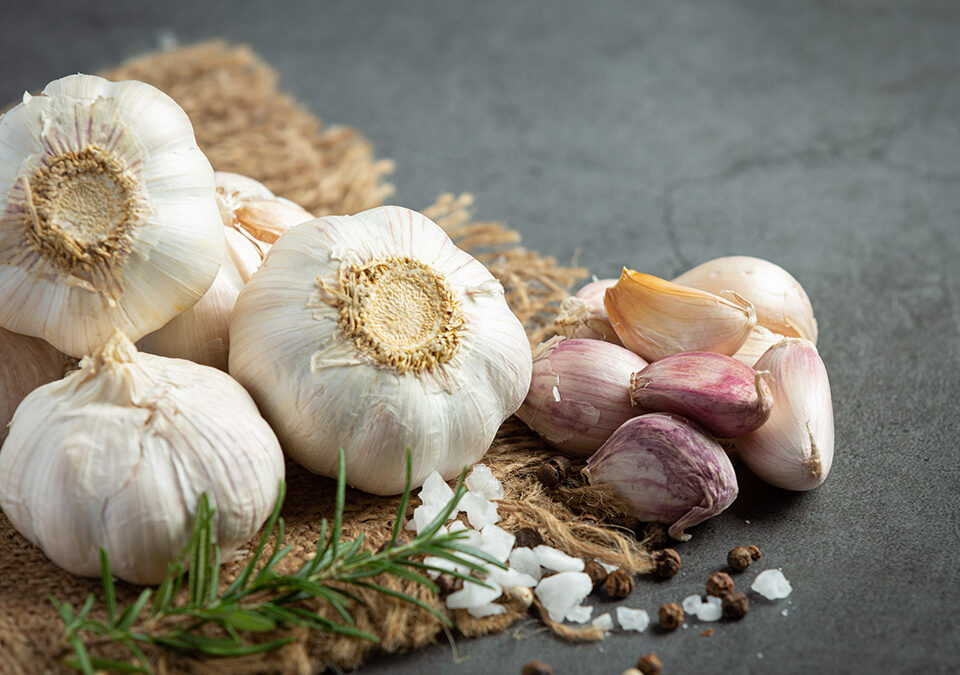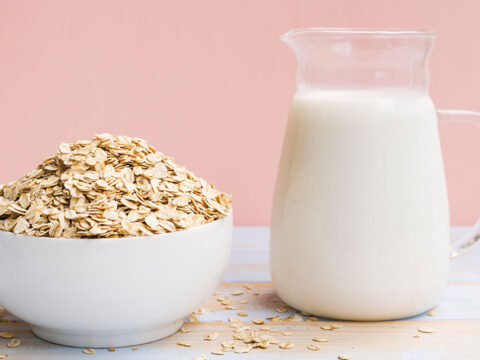
Diabetes And Gluten: What You Need To Know
July 2, 2021
Can You Eat Strawberries If You Have Diabetes?
July 2, 2021Garlic and Indian cuisine go hand in hand. After all, this perennial herb is an active part of so many curries, broths, and stews. Most of the health benefits of garlic are due to allicin, which is a sulphureous compound present in the cloves of garlic. This compound gives garlic its characteristic pungent taste and smell. Besides boosting immunity and supporting cardiovascular health, by keeping a check on blood pressure, garlic can also help in regulating blood sugar levels. Let’s take a closer look at the benefits of garlic in diabetes.
More About Garlic
Garlic, whose scientific name is Allium sativum, has been considered a health booster since ancient times. What’s more, research is showing that garlic can, to a large extent, reduce blood sugar levels and other complications related to diabetes. Thus, garlic and diabetes are associated.
It is believed that the chemical components that are present in garlic raise levels of insulin in the blood. These components are also said to prevent the inactivation of insulin by the liver, thus ensuring more availability of insulin in the body. When it comes to diet for effective diabetes management, garlic must be incorporated into it.
Benefits Of Garlic For Diabetes
Numerous studies suggest that consuming garlic in moderation daily (at least 1 clove or equivalent) can help those with type 2 diabetes in regulating their blood glucose levels and improving insulin sensitivity.
Results from 9 studies analysing garlic and diabetes showed a marked reduction in fasting blood sugar within one to two weeks in the group that was consuming 0.05-1.5 grams of garlic supplement on a daily basis. Moreover, it was noted that A1C levels were drastically reduced by the 12th week.
Consumption of garlic also showed a reduction in LDL (low-density lipoprotein) or “bad” cholesterol with a simultaneous increase in HDL (high-density lipoprotein) or “good” cholesterol.
Does Garlic Consumption Have Side Effects?
Besides the obvious health benefits of garlic, there are some factors to take into consideration, if you are planning to increase your intake of garlic. While garlic is quite safe to consume on a daily basis, you will have to tackle its powerful taste and odour as well as your own bad breath. Consuming too much garlic can also lead to a strong body odour. In addition, when consumed in raw form, garlic can lead to nausea, vomiting, gas, heartburn, and diarrhoea. Further, garlic can increase your risks of bleeding; hence, its intake is not recommended before surgery. What’s more, if you are taking a blood thinner, you must talk to your doctor or physician before consuming copious amounts of it.

Adding Garlic To Your Diet
If you want to incorporate garlic into your diet, you can add it to savoury dishes, soups, and sauces because garlic complements these. If its strong taste is not a deterrent, you can add finely chopped, raw cloves of garlic to your salads as well as other meals. It is often recommended to let finely chopped garlic sit for at least 5 minutes to significantly enhance its health benefits. If you prefer a mellower form of garlic, you may sauté it in oil or bake it in an oven prior to adding it to your favourite dishes. Garlic is also available in the form of oil, powder, and tea.
Garlic Supplements
If you find the taste and odour of garlic too pungent to include in your food, you may opt for a garlic supplement.
Such a garlic supplement diabetes can be extremely useful for elderly individuals and older adults, whose calorific intake is lower and who have lesser control regarding their food choices.
Make it a point to consult your doctor to make sure that consuming additional garlic will not interfere with other medications that you may be taking.
The Last Word:
You need to keep in mind that the offered health benefits of garlic outweigh its disadvantage of strong odour. Therefore, if you have type 2 diabetes, consider incorporating it into your daily diet. Your body will surely thank you. Having said that, it also important to consult your doctor or dietician before making any changes in your diet.




